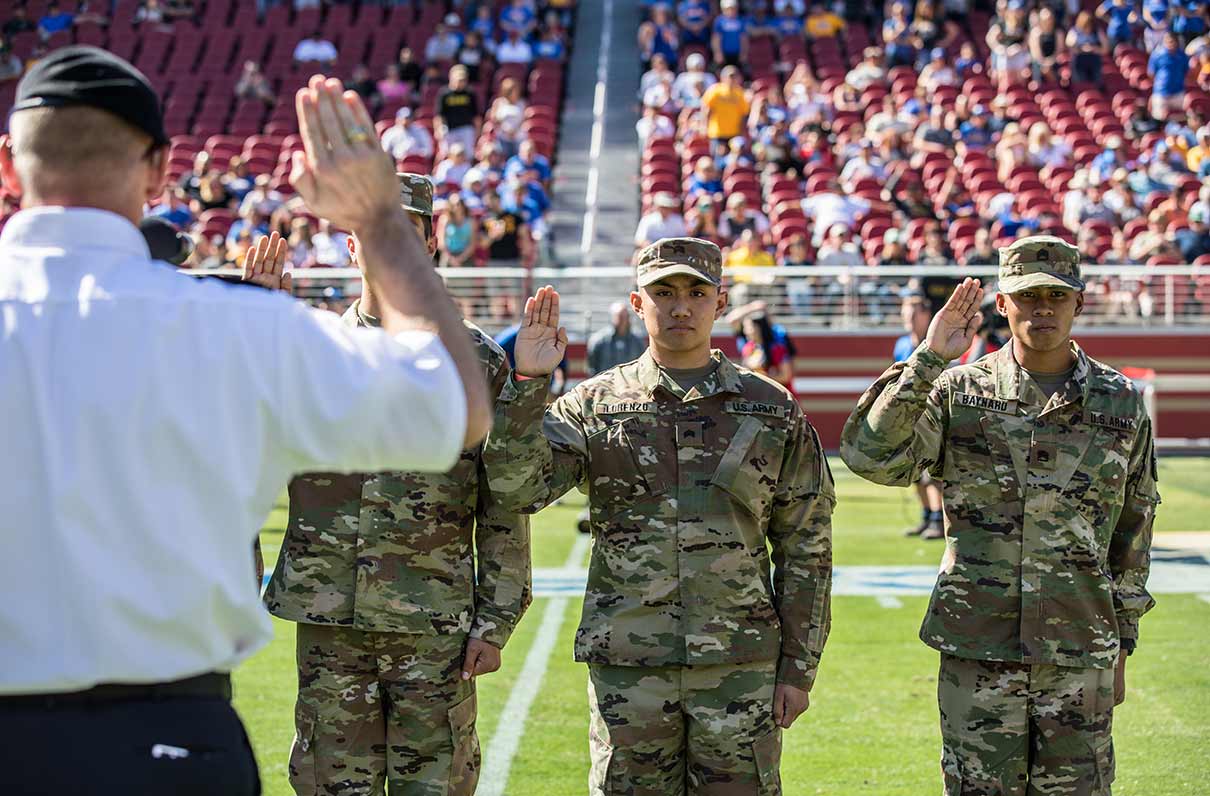This time of year, high school seniors are completing college applications, and high school juniors are considering where to apply to college. Figuring out how to pay for college is part of this process. One option for many MilKids is ROTC because their upbringing inspires them to continue the family tradition and serve their country, while getting financial help to pay for college.
One question that comes up while considering ROTC concerns the difference between “regular” ROTC at a civilian college vs. Corps of Cadets programs at certain colleges. They both offer routes to the military and help with college tuition, but they accomplish this differently.
The Corps of Cadets is a program offered at six colleges known as senior military colleges (SMCs). At some schools, the student population is 100-percent Corps, while at others, the Corps is part of a larger student body.
Schools offering Corps of Cadets programs include:
- Virginia Military Institute (VMI): State military college and 100-percent Corps
- The Citadel: State-supported, and 100 percent of undergrads are Corps
- Virginia Tech and Texas A&M: Public universities hosting a Corps program as part of a larger civilian university
- University of North Georgia: State military college; 100-percent Corps and 100-percent Army
- Norwich University: Private military college that has a Corps of Cadets and civilian student population
SMC Corps grads are guaranteed an active duty commission. However, choosing to commission is not mandatory. If a cadet chooses to contract for commission and receives a scholarship, the cadet is obligated to serve active duty. On the other hand, if a cadet chooses not to contract, they will have no military obligation after graduating.
For instance, at Texas A&M, usually 40-45 percent of cadets pursue a commission in either the Army, Air Force, Navy, or Marine Corps.
Conversely, students in ROTC programs at non-SMC civilian schools sign a contract before their final two years of college to commit to serving upon graduation.
At non-SMC schools, ROTC is a slate of courses and activities taken in addition to the regular college courses. This leads to another difference between ROTC and Corps of Cadets programs: the lifestyle.
In an ROTC program, uniforms are worn two or three times a week depending on ROTC activities. In the Corps programs, a uniform is worn every day on campus and all week both on and off campus at some SMCs (including football games).
Physical training differs as well. At most ROTC programs, it's once or twice a week versus every day at a Corps program. The same goes for drills and formation.
ROTC programs will also offer more freedom and less structure. Students are free to room and socialize with non-ROTC students in non-ROTC dorms or floors, choose their own class schedule, and come and go on and off campus at any hour. It's a typical college experience, except with ROTC classes and activities a few times a week and some weekends (this varies by detachment). Many ROTC students at non-SMCs find time for ROTC, extra classes, school sports or clubs, Greek life, a part-time job, pizza off campus at midnight, and sleeping in.
Meanwhile, Corps students might expect to find a daily schedule like that at Texas A&M.
- 0600: Formation and exercise
- 0700 - 0720: Chow
- 0730 - 1830: Academics
- 1630 - 1830: Training
- 1800: Evening formation
- 1830 - 1900: Evening chow
- 1930 - 2230: Evening study
- 2230: Room study and lights out
One lifestyle is not better or worse than the other; they're just different. And upon commissioning, it won't matter which program was chosen.
Where a MilKid goes ultimately depends on what they are looking for in ROTC and college. A friend whose son chose Texas A&M said, “He liked the traditions of the Corps and thought it would be the best way to get ready for the Army. He is getting ready to contract with the Army and will commission right after graduation. He did not want to do ROTC twice a week but wanted to immerse himself.”
My kids are in Air Force ROTC at non-SMC schools. The flexibility and opportunities of a regular college life appealed to them, along with the opportunity to have a social circle outside of ROTC (as well as late night pizza and sleeping in).
For complete details on the SMC programs, MilKids should look at schools' websites and the respective detachments' websites and Facebook pages. MilKids considering a Corps program should spend a day at the school or do an overnight.
